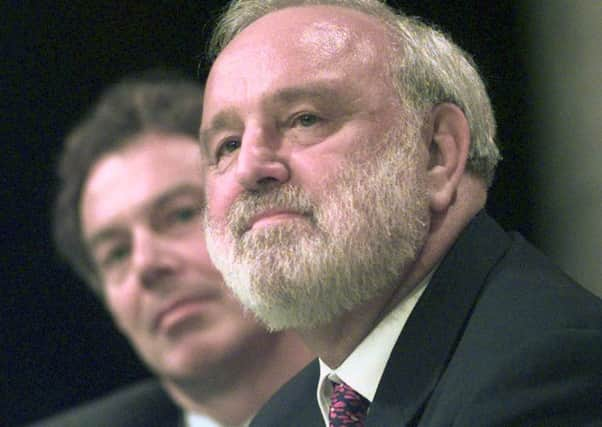Obituary: Frank Dobson, politician


“All the evidence shows that most people don’t want to shop around,” he famously said of his own Government in 2005, accusing it squandering money on “glossy brochures, public relations consultants and marketing companies”, rather than on the essentials.
He was Labour’s first health secretary for 18 years and a forthright advocate for the party’s traditional values in the face of the Blair modernisation.
Advertisement
Hide AdAdvertisement
Hide AdA familiar name on the ballot paper, having served the people of Holborn and St Pancras since 1979, he announced his decision not to seek a ninth straight general election win at a meeting of party members in 2015, saying: “I have decided to pack in when people are stopping me in the street to say they hope I am not going – rather than waiting until they ask why the hell I am still around.”
His support for West Ham belying his Yorkshire roots, he had been made Health Secretary when his party swept to power in 1997, by which time he considered himself an “old Labour warhorse”. But his spell at the top table was cut short when Mr Blair persuaded him to run as the party’s candidate to be London’s first elected mayor.
The result was a disaster for Labour. Not only did Ken Livingstone stand, against its wishes, as an independent, but Mr Dobson’s neighbour, the Hampstead and Highgate MP Glenda Jackson, tried to wrest the party nomination.
After finishing a humiliating third behind Mr Livingstone and the Conservative Steve Norris, Mr Dobson returned to the backbenches, and became a thorn in Mr Blair’s side, speaking out against such party policies as top-up fees for students, longer detention without charge for terror suspects and, especially, the war in Iraq.
Advertisement
Hide AdAdvertisement
Hide AdBorn near York, Frank Dobson was the son of a railwayman. He went to Dunnington Primary and then Archbishop Holgate’s Grammar. He knew he had been fortunate in getting a place there, and spoke often of his friends at the lower school whose lives, he felt, had been blighted unnecessarily by a secondary modern education.
It was while studying at the London School of Economics in 1958 that he joined the Labour Party. He devoted himself to local party affairs and in 1971 was elected to Camden Council, becoming its leader two years later.
He resigned after another two years to be assistant secretary in the office of the local ombudsman.
His elevation to Westminster came in 1979, at the beginning of Labour’s exile in opposition. Michael Foot made him a deputy spokesman on education and then on health, a brief he continued to hold, in a more senior rank, under Neil Kinnock. He was later shadow leader of the Commons, shadow Energy Secretary and shadow Employment Secretary.
Advertisement
Hide AdAdvertisement
Hide AdFinally ensconced in Government, it irked him to have to speak out against a party whose victory he had worked so long to secure. His valedictory speech in 2015 hinted at the forces he had opposed. “Outsiders who have tried to stir up divisions have always failed,” he said. “Common sense and human decency have prevailed.”
He is survived by his wife Janet and three children.